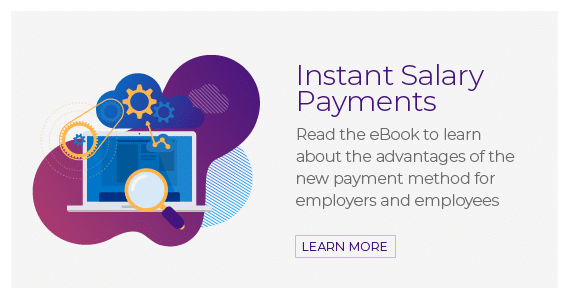Expanding a business into a new country can be difficult, but dealing with the global payroll implications of operating in an extra territory can add a further layer of complexity.
With flexible and remote work becoming much more commonplace post-pandemic, many of the geographical barriers to hiring have been broken down and companies can now theoretically access talent from across the globe. However, every foreign country has its own unique set of regulations relating to employment, pay, tax and other considerations, meaning the more countries a business operates in, the more regulations it has to navigate.
This blog explores the two main ways you can pay international workers, the key challenges to take into account in the process, and the support that can help you handle payments across multiple systems worldwide.
Option 1: set up your own legal entity in the country
The first, and perhaps more obvious, option for paying employees overseas is to set up legal entities in each of the countries in which you are employing people.
If you intend to conduct multiple business operations in a country or employ a significant number of foreign employees there, then setting up a limited company or corporation (for example) can ease those processes. Naturally, there are time and cost implications of doing so, as these processes are longer and more expensive in some countries than others, but it can remove a lot of administrative headaches surrounding your international team further down the line.
One of the key benefits of establishing a legal entity is that it gives you a firm long-term presence in that country, and an easy means of scaling up your headcount or expanding operations in different countries as you grow. However, this option ideally requires some local expertise of employment laws and cultural norms, as well as a payroll provider that can fully comply with them.
Option 2: use the services of an EOR organization
If the legal entity option looks impractical or expensive, then the best alternative is to outsource and partner up with a company that can act as an employer of record (EOR). This is where the EOR company acts as the legal employer of all local employees in question, and oversees all employment-related admin such as local payroll, tax remittance, social security contributions, benefit payments and compliance with local labor laws.
EORs can help businesses sidestep the need to set up a legal entity, and take on the risks of non-compliance (although thanks to their in-house expertise, a good EOR partner will be able to avoid these). They also make it quicker and easier to onboard overseas employees, reduce paperwork, ease expansion plans and ensure all employees get the statutory benefits they’re entitled to.
Challenges and risks with overseas payroll
When employing a workforce in any country, there are always several questions to answer and hurdles to navigate. For example:
-
Have employees been classified correctly from employment and tax perspectives according to local laws?
-
Have they been employed and contracted in accordance with all the relevant labor laws of the host country?
-
Are the right processes in place for correctly running payroll and remitting tax withholdings to the authorities?
-
Will certain employees qualify as permanent residents in certain countries, and therefore be subject to different tax and employment regulations?
-
Is the presence of an employee working within a particular country in line with its immigration laws?
All of these issues have to be resolved for every single employee in an organization and in every country where people are employed, despite the fact that regulations can vary substantially.
This is extremely important for global employment, given the strength of the legal, financial and reputational penalties for non-compliance (as an example, breaching GDPR can result in fines that run into the millions).
In summary
On a more practical level, third-party support can also help you easily process payments across a multitude of different payment methods and systems, whether it’s BACS in the UK, STET in France, eGIRO in Singapore, or CHIPS in the United States. Effective international payroll requires an understanding of the specific workings of each, and especially their timeframes so that even payroll and payments in new markets always run in a timely and accurate manner.
This third-party support can apply whichever international employment option you choose: both the legal entity and EOR routes have their upsides, and your own business’s circumstances for global expansion will dictate which is best. But in any case, in order to ensure you get all the payroll expertise, support, and compliance assurance you need in every country you operate in, CloudPay’s treasury services are here to help. Take a look in more detail here.



